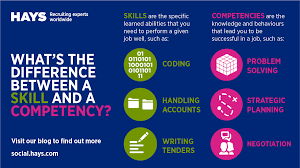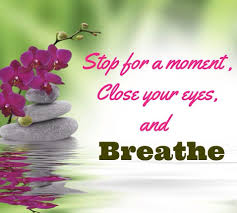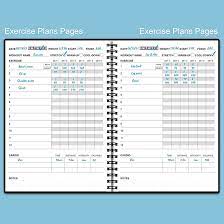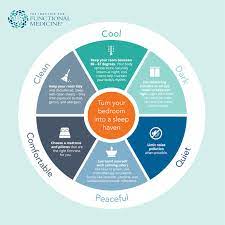The Importance of Developing Skills for Personal and Professional Growth
Skills are the foundation of success in both personal and professional endeavors. Whether it’s mastering a new language, honing your leadership abilities, or improving your technical expertise, developing skills is essential for growth and advancement.
One of the key benefits of acquiring new skills is the sense of accomplishment and self-improvement it brings. By challenging yourself to learn something new or enhance existing abilities, you not only expand your knowledge but also boost your confidence and self-esteem.
Furthermore, developing skills opens up new opportunities for personal development and career advancement. Employers value individuals who are proactive in improving their skill set, as it demonstrates a commitment to growth and adaptability in an ever-changing work environment.
Continuous learning and skill development also enhance problem-solving abilities and critical thinking skills. By acquiring diverse skills, you become more versatile and better equipped to handle challenges effectively, both in your personal life and professional career.
Moreover, developing skills can lead to increased creativity and innovation. As you expand your knowledge base and explore different areas of expertise, you may discover unique solutions to problems or innovative approaches to tasks that can set you apart from others.
In today’s fast-paced world, where technology is constantly evolving and industries are rapidly changing, the ability to adapt and acquire new skills is more crucial than ever. Embracing a mindset of lifelong learning not only keeps you relevant in the job market but also enriches your life with new experiences and opportunities.
Whether you’re looking to advance your career, pursue a passion, or simply grow as an individual, investing time and effort into developing skills is a worthwhile endeavor that can lead to personal fulfillment and professional success.
Mastering Your Capabilities: A Guide to Understanding, Acquiring, and Leveraging Skills for Career Success
- What are skills?
- Why are skills important?
- How can I develop new skills?
- What are the different types of skills?
- How do I identify my strengths and weaknesses in terms of skills?
- Are some skills more valuable than others in the job market?
- Can skills be learned or are they innate?
- How do I showcase my skills on a resume or during a job interview?
- What role do soft skills play in addition to technical skills?
What are skills?
Skills refer to the abilities and competencies that individuals possess, enabling them to perform tasks, solve problems, and achieve specific goals effectively. These abilities can range from technical expertise and practical know-how to interpersonal skills and critical thinking capabilities. Skills are developed through learning, practice, and experience, and they play a vital role in various aspects of life, including personal development, career advancement, and overall success. By honing their skills, individuals can enhance their performance, adapt to new challenges, and continuously grow and improve in both professional and personal spheres.
Why are skills important?
Skills are crucial because they serve as the building blocks for personal and professional growth. Acquiring and developing skills not only enhances our abilities and knowledge but also boosts our confidence and self-esteem. Skills enable us to navigate challenges effectively, make informed decisions, and adapt to changing circumstances. In the professional realm, possessing a diverse set of skills can open up new opportunities for career advancement and increase our value in the job market. Ultimately, skills empower us to achieve our goals, overcome obstacles, and thrive in a rapidly evolving world.
How can I develop new skills?
Developing new skills requires dedication, persistence, and a proactive approach to learning. To begin, identify the specific skills you want to acquire and set clear goals for your development. Utilize a variety of resources such as online courses, workshops, books, and mentorship opportunities to gain knowledge and practical experience in your chosen area. Practice regularly, seek feedback from experts or peers, and don’t be afraid to make mistakes along the way – they are essential for growth. Remember that developing new skills is a journey that requires patience and continuous effort, but the rewards of personal growth and professional advancement make it a valuable investment in yourself.
What are the different types of skills?
There are various types of skills that individuals can possess, each playing a unique role in personal and professional development. Some common categories of skills include technical skills, which are specific abilities related to a particular field or industry, such as programming or graphic design. Soft skills, on the other hand, encompass interpersonal qualities like communication, teamwork, and leadership that are essential for effective collaboration and relationship-building. Additionally, transferable skills are versatile abilities that can be applied across different roles and industries, such as problem-solving, time management, and adaptability. By understanding the diverse types of skills available, individuals can tailor their learning and development efforts to enhance their overall competency and success in various aspects of life.
How do I identify my strengths and weaknesses in terms of skills?
Identifying your strengths and weaknesses in terms of skills involves self-reflection, assessment, and feedback from others. Start by evaluating tasks or activities that come naturally to you and bring you joy – these are likely your strengths. Consider feedback from past experiences, such as performance reviews or comments from colleagues, to gain insight into areas where you excel. On the other hand, pinpointing weaknesses may involve acknowledging areas where you struggle or receive constructive criticism. Engaging in self-assessment tools, seeking mentorship, or undergoing skills assessments can also provide valuable insights into your skill set. Remember that recognizing both strengths and weaknesses is a crucial step towards personal and professional growth as it allows you to focus on enhancing your abilities and overcoming challenges effectively.
Are some skills more valuable than others in the job market?
In the job market, some skills are indeed more valuable than others due to their high demand and impact on organizational success. Technical skills specific to certain industries, such as coding, data analysis, or digital marketing, are often highly sought after. Additionally, soft skills like communication, problem-solving, and leadership are universally valued as they contribute to effective teamwork and collaboration. The value of a skill in the job market also depends on current trends, industry needs, and the level of expertise required. Ultimately, possessing a diverse set of both technical and soft skills can enhance one’s competitiveness and opportunities for career advancement in today’s dynamic job market.
Can skills be learned or are they innate?
The question of whether skills are learned or innate is a common inquiry that sparks debate among experts. While some believe that certain abilities are inherent and individuals are born with predispositions for specific skills, others argue that skills can be acquired through practice, training, and experience. The consensus among many researchers is that while genetics may play a role in shaping aptitudes, the majority of skills are developed through learning and deliberate effort. By engaging in focused practice, seeking out opportunities for growth, and receiving guidance from mentors or coaches, individuals can enhance their skill set and achieve mastery in various areas. Ultimately, the combination of innate talent and dedicated learning is often seen as the recipe for success in developing skills.
How do I showcase my skills on a resume or during a job interview?
When it comes to showcasing your skills on a resume or during a job interview, it’s essential to highlight your strengths effectively. On your resume, create a dedicated skills section where you list relevant abilities and competencies that align with the job requirements. Be specific and provide examples of how you have applied these skills in previous roles or projects. During a job interview, demonstrate your skills through concrete examples and anecdotes that illustrate your capabilities. Focus on showcasing not just what skills you possess but also how you have successfully utilized them to achieve results or overcome challenges in the past. By effectively showcasing your skills, you can make a strong impression on potential employers and increase your chances of landing the job opportunity.
What role do soft skills play in addition to technical skills?
Soft skills play a crucial role alongside technical skills in today’s professional landscape. While technical expertise is essential for performing specific tasks and duties, soft skills such as communication, teamwork, adaptability, and problem-solving are equally important for success in the workplace. Soft skills enable individuals to effectively collaborate with others, navigate complex situations, and communicate ideas clearly. They contribute to building strong relationships with colleagues and clients, fostering a positive work environment, and enhancing overall productivity and performance. In essence, the combination of technical skills and soft skills is a powerful formula for achieving professional excellence and personal growth.




